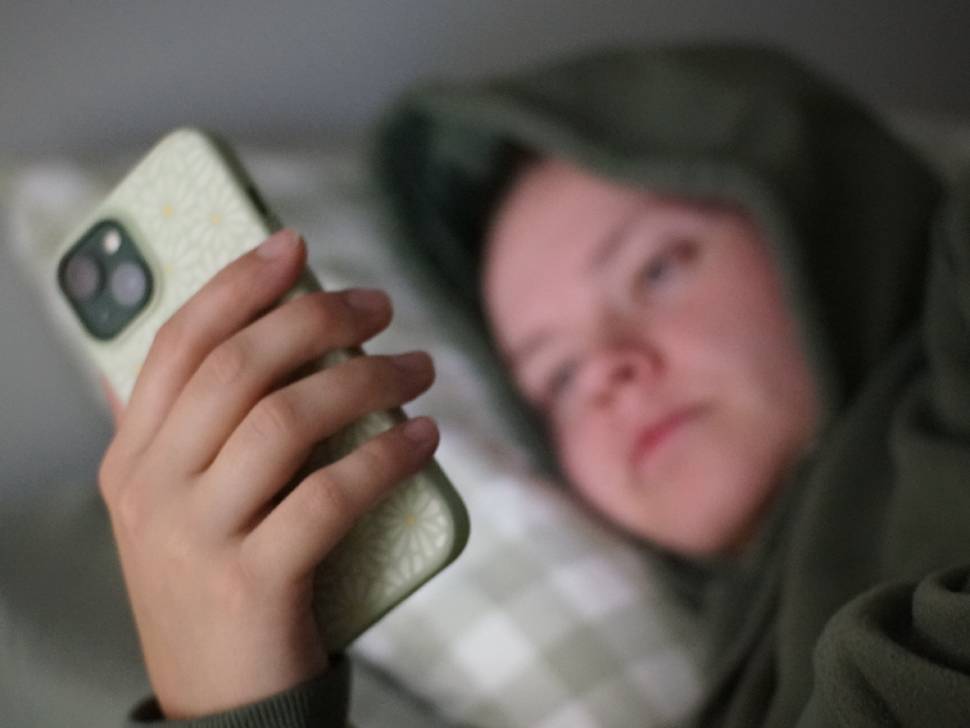When summer hits, sleep schedules often fly out the window, especially for teenagers left to their own devices.
“Sleep is for the weak”, as they say.
Caroline Bitton, a nurse practitioner with Southern Health, is all too familiar with the pattern.
“It's very common,” Bitton says, “Naturally, their circadian rhythms are a little bit later to begin with.”
But while it may seem harmless to let the youth burn the candle from both ends, Bitton says irregular sleep can result in more than just groggy, bleary-eyed mornings.
Why teens stay up late
As structure fades with the school year, Bitton explains, many teens naturally slip into later sleep cycles. But lifestyle choices also play a role.
“There are definitely unhealthy activities that teens do, and adults as well, but teens more, because they lack that ability to… regulate themselves,” she says, pointing to the still-developing executive functioning of the adolescent brain.
Caffeine is another common disruptor of teen sleep, coming typically in the form of energy drinks, according to Bitton. While the ideal would be to avoid these drinks altogether, she says that if teens do consume caffeine, it should be limited to the morning hours.
But, Bitton says that the major culprits when it comes to poor sleep are screens.
She stresses that people should not be exposed to televisions, computers, or phones for at least an hour before bed.
“They shouldn't even be in the bedroom. That's one of the things I tell the parents. Take the phone away. The phone cannot be in the bedroom,” Bitton says, “No answering the phone, no answering texts, no doing nothing while you're sleeping. It cannot even be your alarm clock. Use something else… because that gravity towards the phone is so big.”
Inconsistent sleep and the growing mind
Bitton shares that beyond the grogginess, the health consequences of poor sleep can be serious, affecting nearly every aspect of a teen’s development.
She notes it can impact physical health, including cardiorespiratory and musculoskeletal fitness, as well as cognitive performance, academic achievement, emotional regulation, social behaviours, and long-term cardiovascular and metabolic health.
Even mood and mental health can take a substantial hit.
“Tending more towards like depressive behaviours, anxiety behaviours… we see a lot of teens having a hard time sleeping, and then they think that there’s got to be a diagnosis attached to that. But often it’s because we’re not doing these healthy behaviours.”
As someone who runs a teen clinic at a high school, Bitton sees this often.
“Sometimes they’re like, ‘I just need something to help me sleep.’ OK, let’s back up here,” she says. “Let’s look at what your activities are. Let’s look at, you know, when you’re going to bed. What are you doing with your phone? How active are you being? Let’s work on those things first.”
Why movement matters
Part of Bitton’s solution when someone says they're having difficulty sleeping, is to move more throughout the day.
She says teens should get one hour of moderate to vigorous physical activity during the day, plus several hours of light activity.
“It gets our body moving, and it gets our functions—like our muscles—working, our brain functions better, it lubricates our joints...We are designed to move all the time; we’re not designed to sit.”
And as that school year approaches, Bitton encourages families to start reintroducing structure.
Gently.
“You don't want to all of a sudden be like, OK, you've been going to bed at 1:00 every morning, now we're going to bed at 10 p.m.,” she says. “You want to gradually… maybe every 15 minutes… shorten that time to something a little bit better.”
She says that once a new schedule is set, just be consistent.
What does your body need?
For those looking to understand healthy sleep and activity guidelines for teens, Bitton recommends the Canadian Society for Exercise Physiology’s 24-hour movement guidelines.
“They’re focusing on sweat, step, sleep and sit,” she says. “They give guidelines for all of those four things.”
She adds that the guidelines are also available for other age groups, including older adults, for those interested in learning more about themselves and what their body needs.
